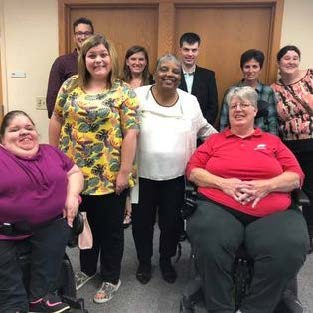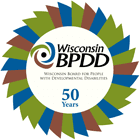The Elements of Success
The Living Well Blueprint is organized around five key elements, each focusing on different aspects of the Living Well project. In each element, the Blueprint Reflection serves as a structured evaluation and planning tool across different levels of
individual, provider and state.
For Individuals: It helps with self-assessment, personalized goal-setting, and accountability for personal growth.
For Agencies/Providers: It enhances service delivery, ensures alignment with standards, and supports continuous
improvement in their practices.
For States: It aligns policies with broader goals, optimizes resource allocation, and aids in monitoring and evaluating
the impact of programs and initiatives.
Click on an element below to learn more about how individuals, agencies/providers, and states can support the enhancement of Home and Community Based Services!
Our Self-Advocates are our strength.
The cornerstone of the Living Well work has been our Self-Advocate Leaders. Their leadership and guidance has helped our providers, state leaders, and many people with disabilities who receive services. Our Self-Advocate Leaders have impacted the resources that Living Well developed and have used their voices to change systems in Wisconsin and across the country.
Training and Mentorship
Our Self-Advocate Leaders have co-created and co-facilitated our Safe and Free Meeting Series, our Rights Guides and Know Your Rights Videos, and our Healthy, Safe and Connected Toolkit. These resources, trainings and peer-to-peer education has impacted thousands of self-advocates across Wisconsin.
Advocacy
Our Self-Advocate Leaders have worked with state agencies, legislators, policymakers, and providers to transform the Home and Community-Based Services in Wisconsin. They have attended Disability Advocacy Day, submitted public comments, attended hearings, presented on panels and conferences, and now sit on boards.
Plain Language
Our Self-Advocate Leaders have worked with groups across Wisconsin to improve their resources and materials to be in plain language. From the BPDD resources to Department of Health Services communications, they have improved the accessibility for people with disabilities to understand the services and systems that impact their lives.



